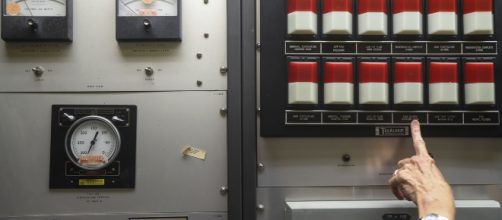The Lunar Receiving Laboratory was once a home for many astronauts. They had just been on the journey of a lifetime. Before they re-joined the rest of the world, they spent a significant amount of time in the lab – weeks, in fact.
It has gone on to be used for other purposes since then. But it has fallen into disrepair and is outdated. And so, sadly, it's scheduled to be torn down, as reported by ABC News.
The first astronauts who landed on the Moon stayed there
Neil Armstrong, Buzz Aldrin and Michael Collins didn't immediately go home to their families.
Instead, they and their lunar samples spent three weeks in quarantine at the lab in Houston, Texas. Armstrong celebrated his birthday within its confines.
The men had just spent a number of days in a small spacecraft. So, at first, they didn't mind the much more spacious laboratory. But eventually, they became eager to find even more open space. Similar quarantine procedures were followed after two more Moon missions.
Eventually, it was decided that quarantining the astronauts was unnecessary. The lab was then used to study and store various lunar samples. It later housed samples from crewless Soviet missions along with ones collected by NASA. More subsequently, it was used for health and medical studies.
A more energy-efficient building is being designed to replace the lab. The U.S. News & World report indicates several pieces of the lab are to be preserved. They, along with pieces of equipment from inside, are planned to be put on display.
The disease was a real concern
Scientists didn't know if the astronauts would come in contact with any new contagions on the Moon.
And if they did, people didn't know what they would be or how they could be treated. So, quarantine was chosen as a precaution.
But the scientists, after three quarantines, apparently didn't find any new contagious diseases. The astronauts were also quarantined before the mission to try to keep them from getting sick in space.
This procedure still exists today. Something that some people might consider simple, like the common cold, could be disastrous in space.
Astronauts can have limited contact with others starting ten days before the launch date. Around that same time, they undergo a physical examination. At seven days before the launch, they're formally quarantined. In theory, that should give enough time for signs of any viruses to appear. And, also, in theory, the astronauts wouldn't contract any while in quarantine. But none of this is foolproof, and multiple astronauts have gotten sick in outer space.
As it turns out, being in space actually seems to be bad for the immune system. But, so far, there hasn't been anything too serious.


